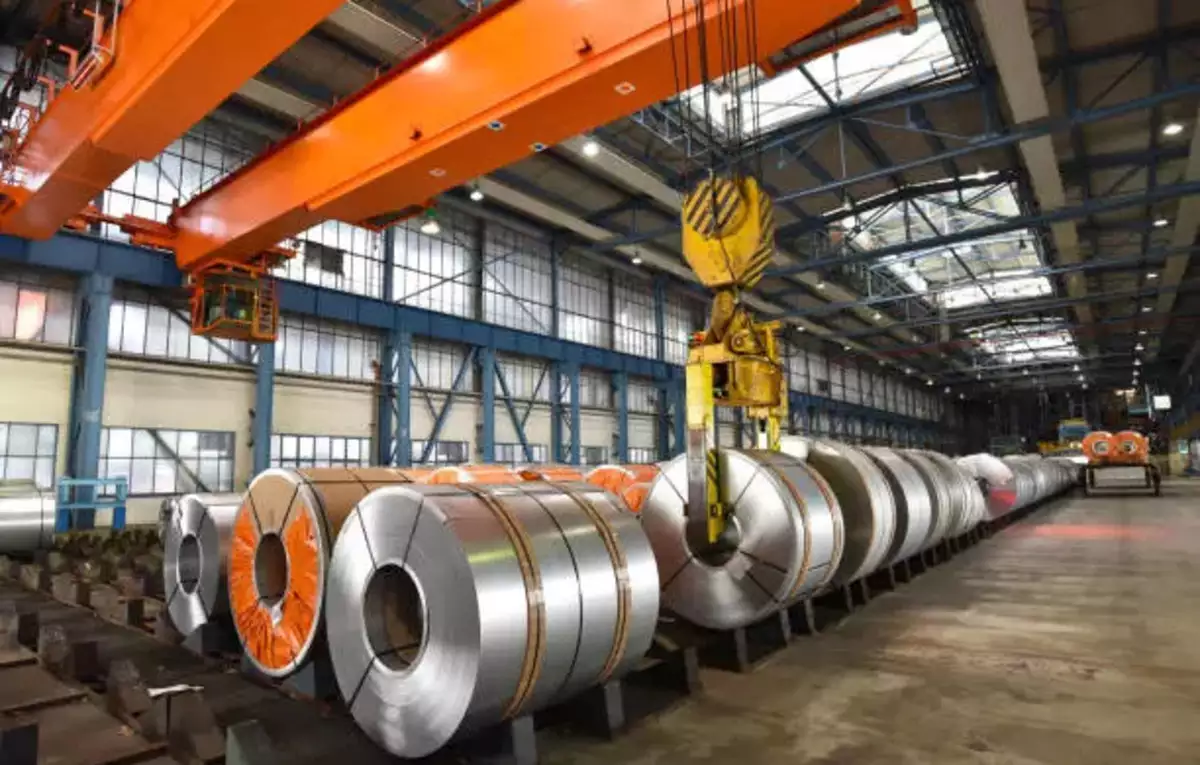
Biden will stop selling American steel to a Japanese buyer, according to a source
The controversial merger proposal is likely to suffer a deadly blow as U.S. President Joe Biden is set to formally deny Nippon Steel’s (5401.T), opens new tab proposed $14.9-billion acquisition of U.S. Steel (X.N), according to a person familiar with the situation on Friday.
In December, the Committee on Foreign Investment in the United States (CFIUS) submitted the deal to Biden after months of examining it for national security concerns and failing to come to an agreement.
The revelation was initially reported by the Washington Post, which said that his decision may be made as early as Friday, despite some of his senior advisers’ worries that it might damage relations with Tokyo, a crucial ally in Asia.
According to the newspaper, two government officials who were not permitted to discuss the issue in public were quoted.
The reports caused U.S. Steel’s stock to drop 7.8% in pre-market trading. Because Friday was a public holiday, the Japanese stock market was closed.
Both Nippon Steel and the White House declined to comment.
U.S. Steel referred Reuters to its statement on Thursday, expressing its confidence that “Biden will do the right thing and adhere to the law by approving a transaction that so clearly enhances U.S. national and economic security.”
In a December 2023 auction, Nippon offered a high price to obtain the No. 2 U.S. steel production, but lawmakers and the influential United Steelworkers union (USW) opposed the sale.
Prior to his inauguration on January 20, President-elect Donald Trump has pledged to prevent a foreign takeover of the iconic American company, while Biden has stated that he wants U.S. Steel to remain owned and operated locally.
DARROUS BUSINESS
Reuters has exclusively reported that Japanese Prime Minister Shigeru Ishiba requested Biden to accept the merger in a letter sent in November in order to avoid tarnishing recent efforts to improve relations between the two nations.
There was no official announcement of a decision, according to Japan’s trade ministry, and Ishiba’s representative was unavailable for comment on Friday.
Along with North Korean threats, China’s economic and military growth has alarmed Washington, and Japan is a crucial ally of the United States in the Indo-Pacific region.
It is also the largest investor in the US, and its largest business lobby, Keidanren, has publicly expressed worries that political pressure was being applied to the study.
Alistair Ramsey, vice president of steel research at consulting firm Rystad Energy, stated that blocking the purchase might initially deter foreign investors from placing bids for politically sensitive U.S. industries with unionized workers.
“Big bids are a risky idea less than 12 months from a presidential election, but big steel producers with traditional operating furnaces, such as Nippon Steel, see the U.S. as an excellent place to produce steel in the long term, despite the market depression there,” he continued.
Nick Wall, an M&A partner at Allen & Overy, has stated that it would be difficult to establish a legal case against the U.S. government, despite Nippon’s commitment to fight in court any decision to cancel the purchase.
Both businesses had attempted to allay worries about the combination. In addition to pledging to uphold all agreements between USW and U.S. Steel, Nippon proposed to relocate its U.S. headquarters to Pittsburgh, the location of the American steel mill.
As part of its attempts to win Biden’s support, Nippon Steel also suggested this week that the U.S. government be granted veto authority over any possible reductions to U.S. Steel’s production capacity, according to a source with knowledge of the situation.
Together with the other sources, a Japanese government official who spoke on condition of anonymity stated, “It is difficult to fully understand the risks involved in Nippon Steel’s potential acquisition of U.S. Steel.”
“Nippon Steel has done everything to eliminate risks related to economic securities, including committing not to reduce production.”
A $565 million penalty payment to U.S. Steel for the deal’s failure will force Nippon Steel to reevaluate its growth strategy that is centered on foreign markets.
By acquiring U.S. Steel, Nippon Steel was able to increase its capacity to produce 85 million metric tons annually from its current 65 million, bringing it closer to its long-term objective of reaching 100 million tons.
According to the USW union, U.S. Steel’s previous claims that the deal’s failure would jeopardize thousands of jobs and compel it to close some steel mills were based on intimidation and unfounded threats.
However, managing director Atilla Widnell of Navigate Commodities, a trading consultant based in Singapore, stated that any move to halt the sale was “misguided.”
“Nippon Steel is a bona fide operator of overseas assets with a strong and successful track record,” Widnell added.
“Even more so, U.S. Steel has acknowledged its assets are in dire need of new large-scale investment and it will not be able to sustain its operational capacity and production in its current state.”
All Categories
Recent Posts
Tags
+13162306000
zoneyetu@yahoo.com



